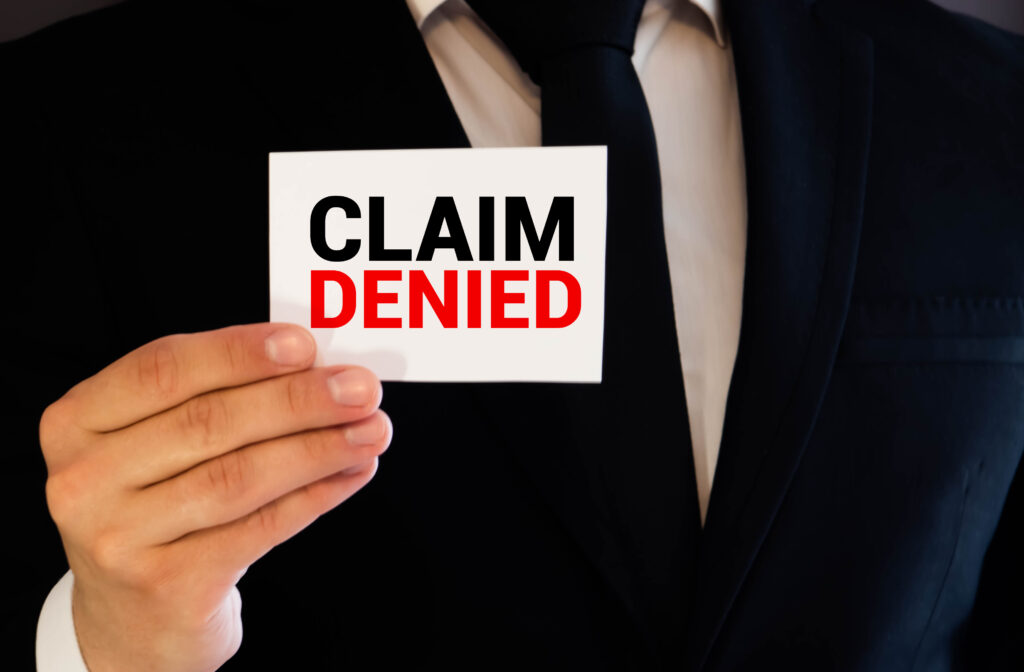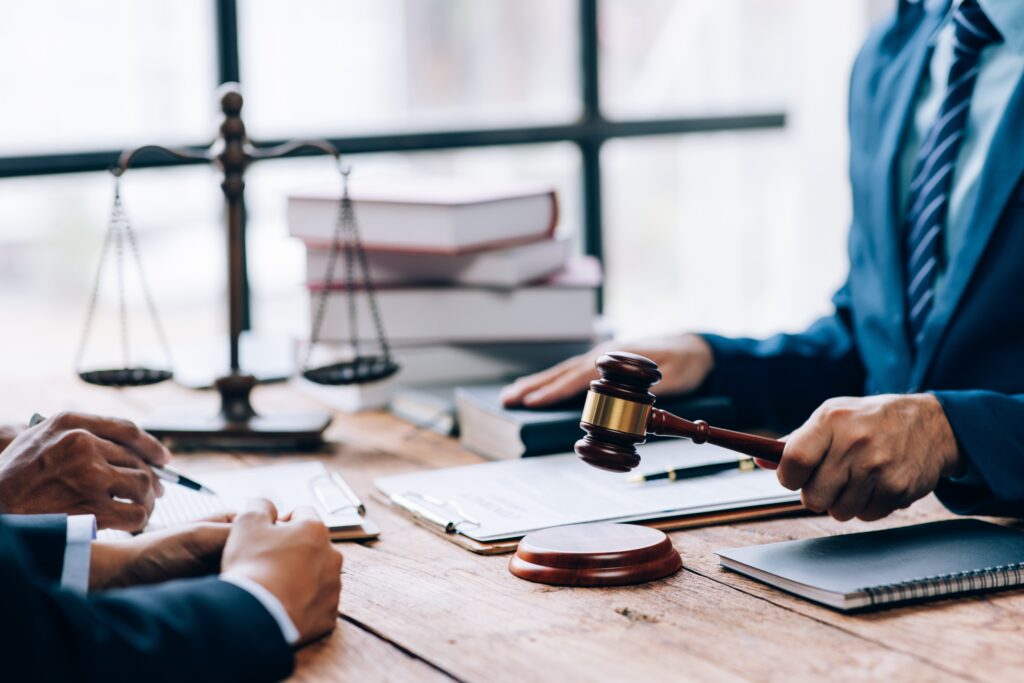Nothing is more frustrating than having an insurance company deny your car accident claim when it wasn't your fault. You shouldn't be responsible for absorbing the costs of medical bills, lost income, property damages, or other expenses associated with an accident when you're not liable.
If you've received a claim denial letter for a motor vehicle collision resulting in severe injuries and financial losses, consult an Abilene car accident lawyer immediately. Your right to recover compensation doesn't stop with that letter.
Reasons Why Insurers May Deny Your Car Accident Claim

There are a handful of legitimate reasons why an insurance company will deny a car accident claim. However, insurance claims adjusters are charged with finding ways to minimize their company's payouts.
Your lawyer will review your claim denial letter to assess your chances of recovering compensation through an appeal. Reasons why insurance companies may deny your car accident claim include liability, policy, time restrictions, and due to bad-faith insurance tactics.
Liability-Based Claim Denials
Denials based on unclear or disputed liability are typical. If an insurer determines their policyholder is not or only partially liable after investigating the car accident, they will deny a claim. In instances of multiple or several liability, it's common for insurance companies to point fingers at each other to minimize their company's financial responsibility to compensate for damages.
Policy-Based Claim Denials
Another significant factor in insurance claim denials involves policy fine print and exclusions. For example, an insurance company may not be responsible if the policyholder does not cover the at-fault driver. Other policy-based denials involve lapses in coverage and exclusions regarding the type of accident or injuries for which your claim seeks compensation.
Time-Based Claim Denials
Each state operates under individual statutes of limitations on how long you have to file a car accident claim—generally ranging between one and three years. It's important that you don't wait to begin the claim process. While that may sound like a lot of time, it moves quickly, and late filings lead to numerous accident claim denials annually.
Injury-Based Claim Denials
Insurance companies commonly deny claims based on denying being the cause of your injuries. They will deny a claim if they believe a claimant's injuries are pre-existing. Undergoing a comprehensive medical evaluation following a car accident is critical in documentation, diagnosis, treatment, and recovery.
Bad-Faith Insurance Tactics
Liable insurance companies use less-than-stellar practices to minimize financial losses. First, they will call you, acting as a sincerely concerned professional. Next, they will ask that you provide them with a recorded statement for their records.
If you consent, they will ask deliberate questions designed to get you to say anything they can use to deny partial or total liability of your car accident claim. Some common bad-faith tactics include:
- Significantly undervaluing claims
- Unreasonable claim denials
- Failing to investigate your claim adequately
- Failing to review all records and interview witnesses
- Unjustifiably delaying claim payments
- Making endless requests for unnecessary documentation and paperwork
- Misrepresenting insurance policy provisions to their financial benefit
- Making threatening statements to intimidate injured parties into settling too soon and for too little money
In addition, liable insurers may suggest their in-house medical professionals evaluate your injuries and pressure you to release your medical records. Do not consent to either. They may attempt to dismiss new injuries as pre-existing conditions.
If you have already provided a recorded statement, authorized them access to your medical records, or seen their doctors, you need to speak with a local car accident lawyer right away. They will advise you on what to do next.
What Can I Do if an Insurance Company Denies My Car Accident Claim?
Retaining an experienced car accident attorney is the first thing you must do following an insurance claim denial letter. A denied claim doesn't entirely absolve the insurer of liability. You have the right to appeal the denial or file a lawsuit:
- File an Appeal: Insurance companies have an appeals process open to denied claimants. Having a lawyer attached to your appeal shows the insurer that you're serious about recovering compensation for your claim. They understand an attorney will demand and negotiate a fair settlement.
- File a Lawsuit: If the liable insurance company refuses to compensate you for your injuries and damages fairly, your attorney may file a lawsuit to pursue your settlement. However, most car accidents are settled during appeals once you've obtained legal counsel.
It's highly advised you retain a car accident lawyer immediately following a collision to avoid invalid denials and lengthy appeals. Due to contingency fee-based arrangements, car accident victims can retain legal counsel without out-of-pocket expenses or financial risk. If your lawyer cannot secure compensation during appeals, you don't owe them a thing.
How Will a Lawyer Help After an Insurance Company Denies My Car Accident Claim?

A knowledgeable car accident lawyer will explain your claim denial letter and develop a strategy to secure financial compensation. Their services are invaluable to winning insurance appeals and car accident lawsuits and include:
- Gathering Evidence: Your attorney will collect photos and video of the accident scene, pictures of your injuries following the crash, police reports, vehicle debris, and other evidence relevant to proving negligence and liability.
- Interviewing Witnesses: Locating and interviewing witnesses from the scene is vital to confirming what's been said and discovering any forgotten details. Witnesses often have viable cell phone footage that demonstrates liability and damages.
- Accident Reconstruction: Accident reconstruction specialists use mathematics and physics to determine liability and present it clearly. They often use computer simulation, 3D models, and diagrams to recreate the accident scene. Their expert testimony is helpful during appeals and lawsuits.
- Expert Consultation: Car accident attorneys utilize a network of expert witnesses to help pinpoint negligence, establish liability, verify the severity of your injuries, and value the damages of your claim. These experts may include healthcare professionals and economists.
- Negotiating With Insurers: Negotiations are critical in securing fair compensation for your car accident claim. It's typical for insurers to start low and force your attorney to engage in multiple rounds of negotiations before finally offering a fair settlement.
A Skilled Car Accident Attorney is Standing By
Do not delay retaining legal counsel to determine a strategy for appealing your denied car accident claim. Schedule a free consultation with an experienced Abilene personal injury attorney today.